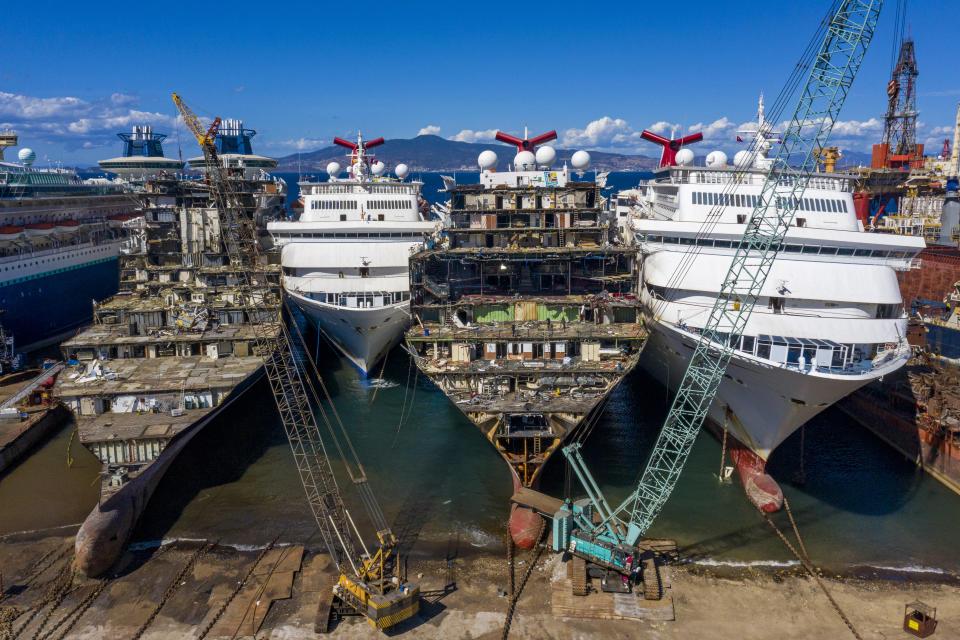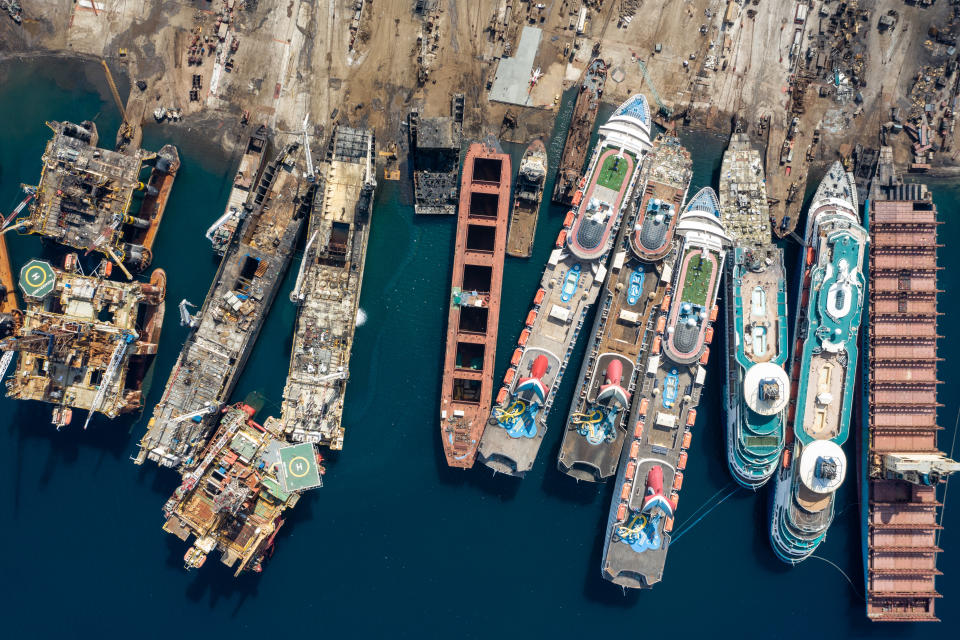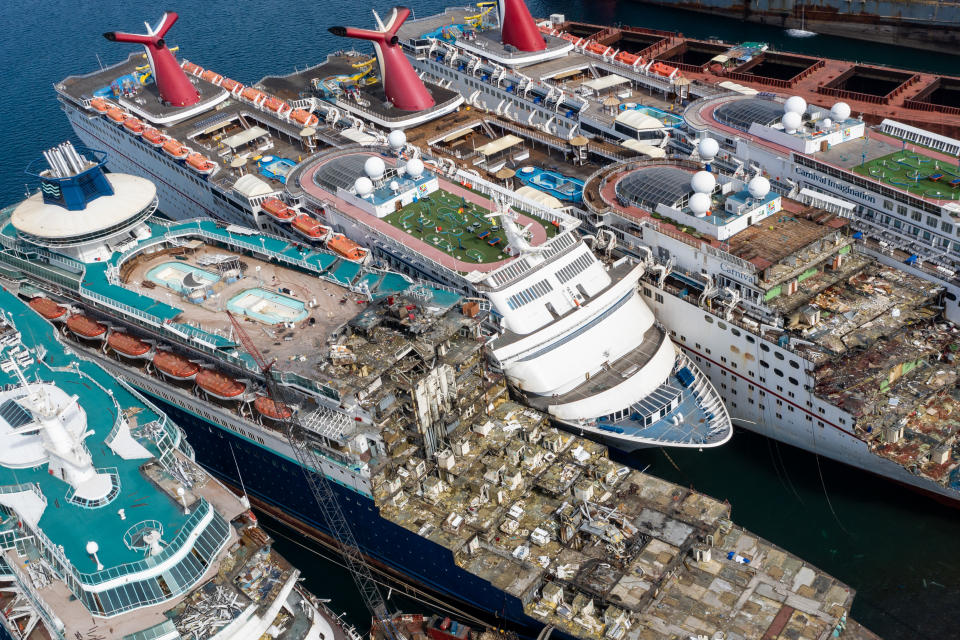Incredible photos show hidden impact of coronavirus crisis
If there is one industry that has come to symbolise the global coronavirus pandemic perhaps above all else, it is the hard-hit cruising sector.
Virus outbreaks on board cruise ships left them awkwardly docked at ports around the world as travel plans were cancelled and the stock prices of big cruise companies cratered.
The term “floating Petri dishes” became splashed throughout the world’s media as cruise ships began sitting idle.

Incredible photos show the flip side of that equation as business is booming at a dock in western Turkey, where hulking cruise ships are being dismantled for scrap metal after the pandemic all but destroyed the industry.
In March, US authorities issued a no-sail order for all cruise ships that remained in place until the end of October.
While some cruise ships have made a tentative return to the seas in recent weeks, others have been sent to the graveyard prematurely.
Sitting in the dock in Aliaga, a town 45 kilometres north of Izmir on Turkey’s west coast, dozens of workers strip walls, windows, floors and railings from vessels.

Before the pandemic, Turkey’s ship-breaking yards typically handled cargo and container ships, Kamil Onal, chairman of a ship recycling industrialists’ association told Reuters recently.
“But after the pandemic, cruise ships changed course towards Aliaga in a very significant way,” he said of the town.
“There was growth in the sector due to the crisis. When the ships couldn’t find work, they turned to dismantling.”
Mr Onal said some 2500 people worked at the yard in teams that take around six months to dismantle a full passenger ship. The vessels arrived from Britain, Italy and the United States.
The shipyard aims to increase the volume of dismantled steel to 1.1 million tonnes by the end of the year, from 700,000 tonnes in January, he said.
“We are trying to change the crisis into an opportunity.”

WHO fears third virus wave in Europe
While a vaccine is hopefully around the corner, it remains to be seen how soon normal travel and tourism can return to pre-pandemic levels. Given rising cases in much of the northern hemisphere, it won’t happen any time soon.
A World Health Organisation special envoy on Covid-19 is predicting a third wave of the pandemic in Europe in early 2021, if governments fail to take needed action.
"They missed building up the necessary infrastructure during the summer months, after they brought the first wave under the control," the WHO's David Nabarro said in an interview with Swiss newspapers published on the weekend.
“Now we have the second wave. If they don't build the necessary infrastructure, we'll have a third wave early next year,” said Mr Nabarro, a Brit who campaigned unsuccessfully to become the WHO director general in 2017.
Europe briefly enjoyed sinking infection rates that are now surging again. Germany and France on Saturday saw cases rise by 33,000 combined, Switzerland and Austria have thousands of cases daily, while Turkey reported a record 5,532 new infections.
with Reuters
Do you have a story tip? Email: newsroomau@yahoonews.com.
You can also follow us on Facebook, Instagram and Twitter and download the Yahoo News app from the App Store or Google Play.


